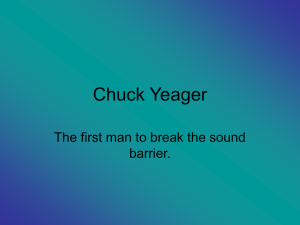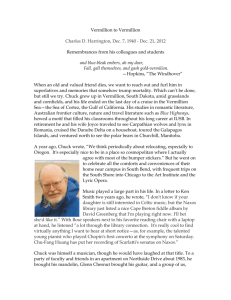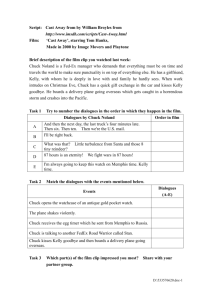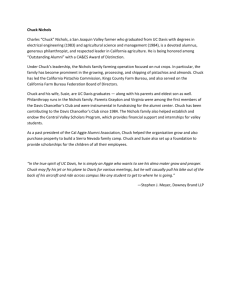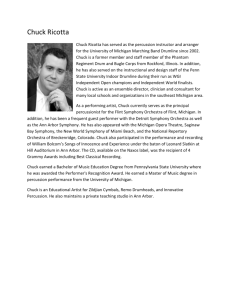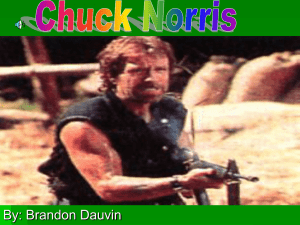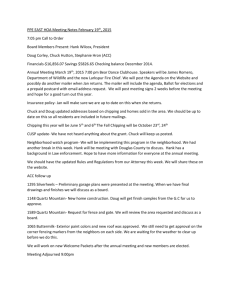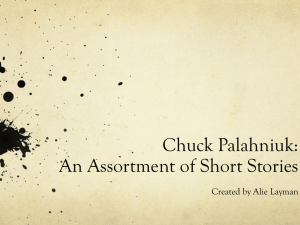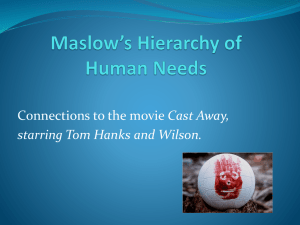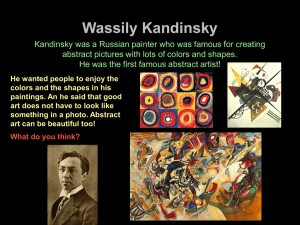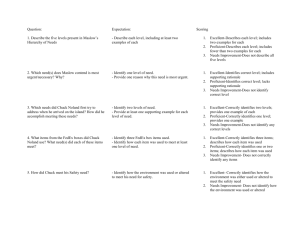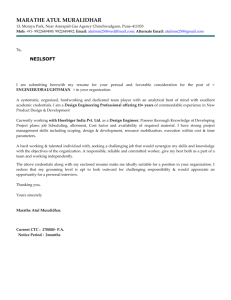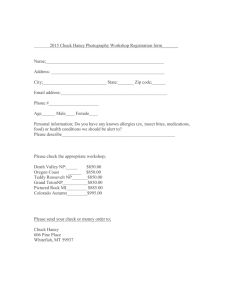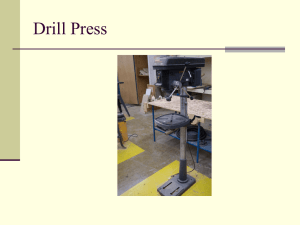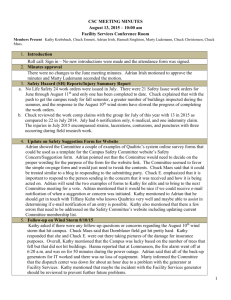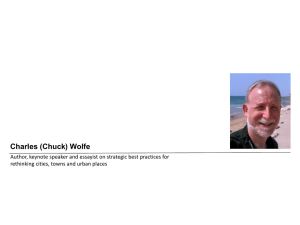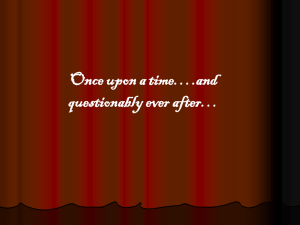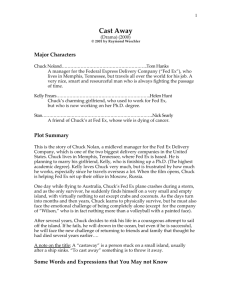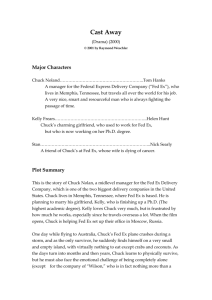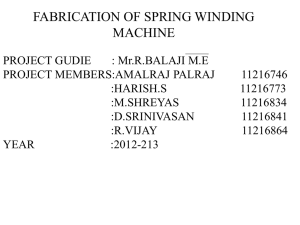Chuck Close - Art for Children
advertisement
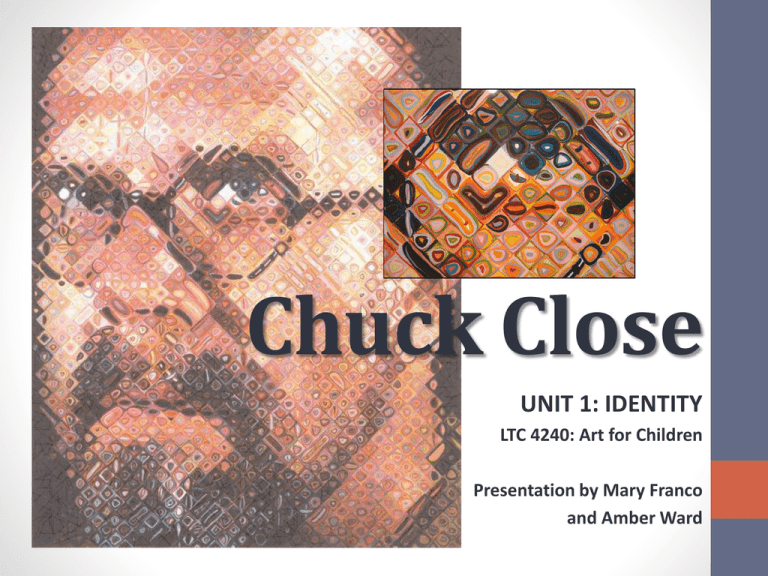
Chuck Close UNIT 1: IDENTITY LTC 4240: Art for Children Presentation by Mary Franco and Amber Ward Artist Chuck Close writes note to younger self http://www.youtube.com/watch?v=GxR3ELuZjLw (5:02) Big Self-Portrait Chuck Close 1967–1968 acrylic on canvas With hard work and determination, Close assumed a new IDENTITY “one of the most recognized artists of our era” (who just happens to have a few disabilities.) Chuck Close’s work is about IDENTITY By creating monumental hyperrealistic portraits, Close captures the model’s unique IDENTIFYING MARKS that distinguish her from all others. Leslie, 1973 Chuck Close Close’s mark-making impacts Perceived IDENTITY of the model MULTIPLES of friend, Composer Phillip Close has portrayed Glass’s face more than any other, recycling a 1968 image of the composer “150 times or something” (Comita citing Close, 2007) Glass Chuck Close, “Georgia,” 1984 Pulp Paper Collage Chuck Close, “Zhang Huan I,” 2008 Chuck Close, “Fanny/Fingerpainting,” 1985 His marks, methods, and MATERIALS evoke different feelings about each model’s IDENTITY Chuck Close, “Lucas,” 1987 “I think problem-solving is highly overrated. Problem CREATION is much more interesting. If you want to react personally, you have to move away from other people’s ideas. You have to back yourself into your own corner where no one else’s solutions apply and ask yourself to behave as an individual.” (Greenberg & Jordan citing Close, 1998) Chuck Close meets Walt Disney: Marks, Multiples, and Materials LTC 4240: Art for Children Spring Semester 2013 Lesson Created by Olivia Gude Into the Complex Characters of Disney 1. 2. Begin on page 2 Consider two Disney characters that, for some reason, appeal to you: one protagonist and one antagonist 3. Write the two names on the provided blanks 4. List traits of each character in the second column. Conduct research on the web, if necessary (try Disney.wikia.com) 5. In the first column, rate yourself on a scale of 1 to 5 for each row based upon similar traits (be honest) 6. Compete the last column for each character by providing evidence of similarities 7. Find the average of both the protagonist and the antagonist 8. What did you find? Any surprises? 9. Consider which character(s) you would like to honor, and continue the discovery process through artmaking 10. If necessary, complete the exercise again using additional characters on page 1 Artmaking • Using “marks, multiples, and materials,” create a painting and/or drawing representing your multifaceted identity. • Consider utilizing layering and juxtaposition to assist you in honoring the unique identifying marks that distinguish you from all others. • Please experiment with several of the following materials: Disney character pages, photos, tracing paper, construction paper, scissors, adhesive, crayon, and/or watercolors. • Student work:https://naea.digication.com/Spiral/Bureau_of_Mis direction--WORKING Words of Wisdom from Chuck Close “Never let anyone define what you are capable of by using parameters that don’t apply to you.” “Inspiration is for amateurs. The rest of us just show up and get up and go to work.” “Sign on to a process and see where it takes you.” “If you’re overwhelmed by the size of a problem, break it down Into mini bite-sized pieces.” References Greenberg, J., & Jordan, S. (1998). Chuck Close, Upclose. New York, NY: DK. Osgood, C. (2010, February 21). [Video interview]. CBS Sunday Morning. Retrieved from http://www.youtube.com/watch?v=GxR3ELuZjLw Rose, C. (2012, April 10). Note to self: Artist Chuck Close’s advise to younger self. CBS This Morning. Retrieved from http://www.youtube.com/watch?v=GxR3ELuZjLw

